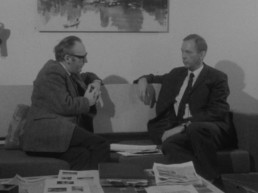Cees Fasseur and his critics
Dissenting voices have been underrepresented in the post-war debates on colonialism and its legacy for decades. One of the main reasons for this omission is that the notion of the objective historian was not effectively problematized for a long time. The dynamics between writer and essayist Rudy Kousbroek - an important critic of the Dutch historiography of colonialism – and Leiden-based historian Cees Fasseur emphasize this. Anne-Lot Hoek argues that Fasseur was selective concerning the ‘Excessen’ note and debate, whilst presenting himself as neutral, which had an impact on younger historians and on the notion of Dutch war crimes in Indonesia in the public debate.

